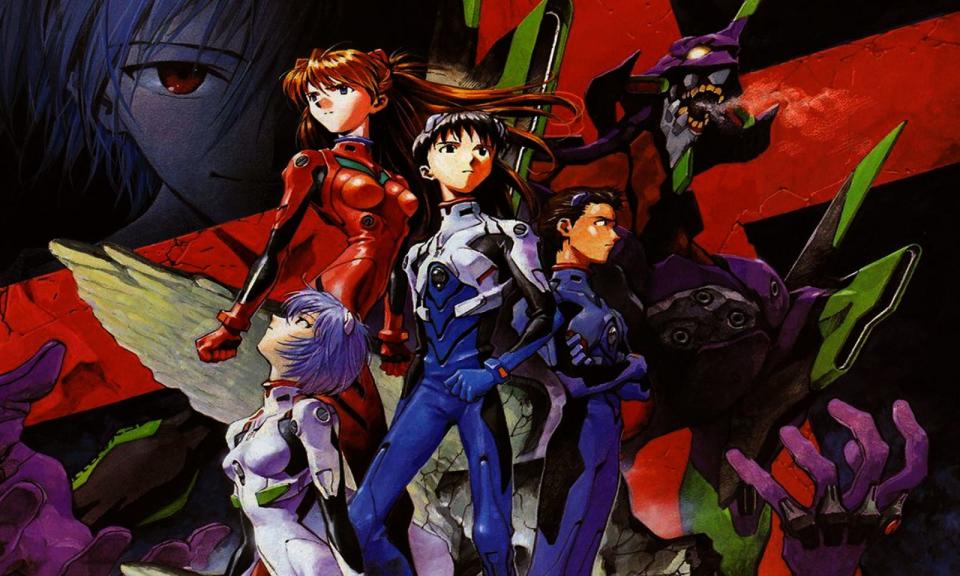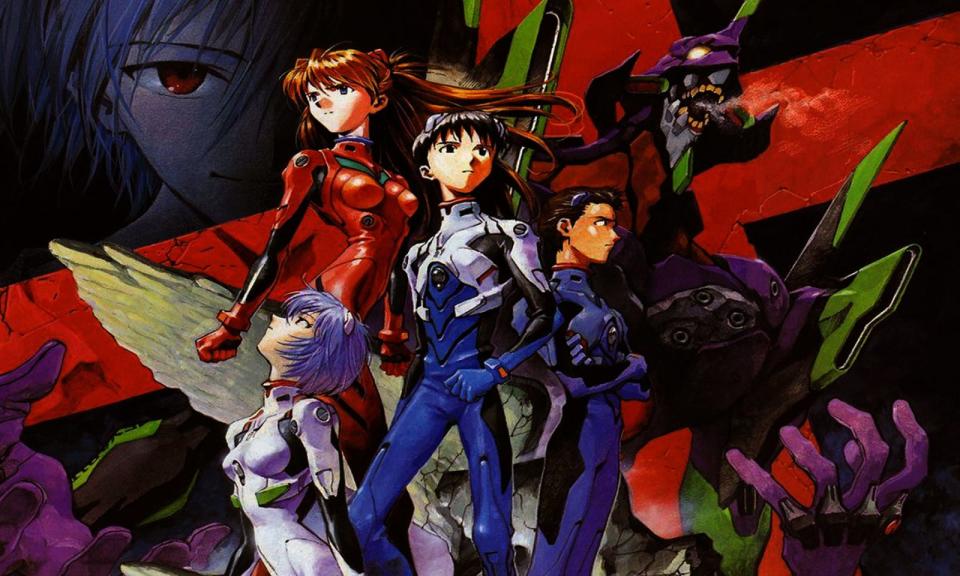The Engadget Staff on ‘Neon Genesis Evangelion’
It hits Netflix on June 21st. Will it be a bigger hit now than it was when it launched?
Netflix has lots of old TV shows in its library, but few of them have received as much attention and promotion as this one. A 24-year-old Japanese cartoon about giant robots fighting monsters hardly seems to deserve the red carpet treatment. But Neon Genesis Evangelion isn't just any old TV show, but one that's poised to be all anyone can talk about once it arrives. In the run-up to the show's worldwide Netflix debut on June 21st, our team looks back on why the show is so important, and beloved.
And, since people are going to be discovering this show fresh, we'll try and keep spoilers to a minimum.

Devindra Hardawar
Senior Editor
Neon Genesis Evangelion helped me survive high school. I discovered it at the perfect time: It was 1996, and I was an angsty teen who never quite fit in anywhere. Anime and the early internet were my saviors, giving me a community (shout out to the late '90s Sailor Moon Chat Room) and library of pop culture that was far more complex and mature than American television. But even within the world of anime, Eva was something different.
On the face of it, Evangelion was just another show about teenagers saving the world with giant robots. But it actually showed them realistically dealing with that responsibility. Their biggest hurdles were personal relationships, mirrored perfectly by the apocalyptic and biblical imagery. (Because to every teen, everything minor bit of drama feels like it means life or death.) And while Evangelion's lore dug deep into obscure texts, it was ultimately about loneliness and the difficulty of connecting with other people. So yeah, it was pretty much catnip for my high school self.
I can't talk about Eva without mentioning its writer and director, Hideaki Anno. Long before I learned about auteur theory in college, the show proved what was possible when a visionary artist could let their creative juices run wild. Anno's direction blew my mind at the time, bringing together classical filmmaking with experimental post-modernism.
Every image in Eva makes an impact, like Unit 01's first steps destroying a nearby phone booth, giving us an instant sense of the giant robot's scale and destructive capabilities. (Guillermo del Toro lifted plenty of imagery for Pacific Rim.) The show was also an artistic outlet for Anno's depression, which is one reason its characters are far more psychologically rich than other giant robot shows. And inadvertently, that's a big reason why Eva connected so well with angsty teens.
Evangelion is the rare example of a show where every artist involved was firing on all cylinders. Shiro Sagisu's score was the perfect blend of epic orchestral compositions and modern jazz riffs (and he also made room for plenty of classical music as well). Evangelion's cast gave their all to their characters, more so than most anime series. That's one reason why the original dub was so reviled, leaving Netflix plenty of room to improve with its new English cast.
And speaking of Netflix, it's still hard for me to process that Evangelion will finally be easily accessible. The DVDs have been out of print in the US since 2011, and we never got the recent Blu-ray release that hit Japan. It never made its way to other anime streaming services like Crunchyroll, because the license was simply too expensive. But it's also been hard to access from the beginning in America -- it first appeared on expensive VHS tapes that only held two episodes. (In my day, it took my several months to rent all of those tapes from my local comic book store.)
I'm no gatekeeper: I'm excited to see a new generation getting access to one of the best TV series of all time on Netflix. I'm sure many will find it overwrought and melodramatic, but I'm hoping a new generation of loners finds some solace in this tale of teens fighting the apocalypse.

Daniel Cooper
Senior Editor
I'm not an anime fan, but as an obsessive reader of SFX Magazine, I knew about Evangelion's outsize influence long before I'd ever seen it. It wasn't until 2004, at university, that I met anyone who had even heard of it, let alone enjoyed it. And they were able to share with me a low-res, fan-subtitled edition of the original run and its two companion movies, and it was revelatory.
Evangelion likes to lean hard on stock anime tropes, but it does so in a way where you feel as if there's no other way this story could have been told. In the same way that The Incredibles provided a perfect remix of all superhero fiction, Eva is the epitome of the mecha show. I've never found anything that comes close to this show in terms of quality, or the sheer depth of its storytelling.
In preparation for the show's arrival on Netflix, I loaded that low-res version onto my phone and planned to dip into it while at Computex. I watched the first episode on my flight home, and couldn't stop myself from watching the whole run, pretty much back-to-back. Because of its short episode length and the tightly serialized structure, it's impossible to watch just one episode. You can see why Netflix wanted it.
There were plenty of moments that I remembered, but rarely in the same context that I thought they were in initially. And a lot of the show's story unfolds within its own margins, something that rewards attentive viewing.
If there's one issue, it's that Evangelion's sexual politics are in line with Japanese cultural values than those in the West. The three main characters are all 14 years old, and their pubescent frustrations and urges are pretty clearly depicted in the show. What's less acceptable is the amount of leery T&A shots of these 14-year-old characters to reflect Shinji's burgeoning sexuality.

The most beautiful moment in the show.
And despite the common belief that the show falls apart in its conclusion, I think the choices made were the right ones. The comically long pauses (to drag out animation time when the budget ran out) work in the context of the show, building tension. And you have to admit that the final two episodes / final movie depicting the same stuff, but from a position inside / outside the characters, was inspired.
I don't recall if there were many resources devoted to Evangelion back in 2004, but I've made full use of them now. Partly because of the way the show was subtitled, and the many nuances of Japanese, there were plenty of things I'd missed. Thankfully, between the Fandom wiki and EvaGeeks, I was able to learn about the stuff that isn't clear to English-speaking audiences.
Don't let that put you off, however: Shows like Game of Thrones are enjoyable without the knowledge of the wider marginalia. It's one of the few TV shows I've ever watched where you almost fidget in your seat along with the characters. For all of the surface detail that Pacific Rim stole from the show, it couldn't replicate the excitement and terror of seeing Shinji climb into Unit-01.
I have plenty of other things I'd love to say, but other writers have expressed it so beautifully that I'd suggest you read them instead. These pieces are spoilerific, so don't click these links until you've binged the show, but please come back to read Gretchen Felker-Martin at VRV and Mike Crandol and ANN.
Get in the robot, Shinji pic.twitter.com/m8no8cWxsE
— Arby's (@Arbys) November 16, 2017
The one thing that will be interesting is seeing how people discover the fan culture that surrounds Evangelion. Will people start looking around at the existing memes and in-jokes and enjoy them, or will new arrivals create their own meta-culture? The fact that, even now, people are tweeting "Get in the fucking robot" and joking about "Tang" on a regular basis speaks volumes.


